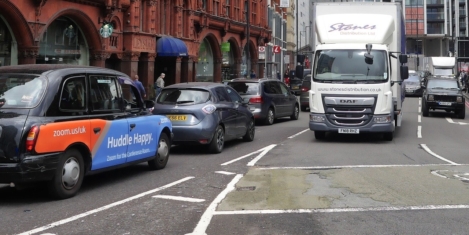To provide the best experiences, we use technologies like cookies to store and/or access device information. Consenting to these technologies will allow us to process data such as browsing behaviour or unique IDs on this site. Not consenting or withdrawing consent, may adversely affect certain features and functions.
The technical storage or access is strictly necessary for the legitimate purpose of enabling the use of a specific service explicitly requested by the subscriber or user, or for the sole purpose of carrying out the transmission of a communication over an electronic communications network.
The technical storage or access is necessary for the legitimate purpose of storing preferences that are not requested by the subscriber or user.
The technical storage or access that is used exclusively for statistical purposes.
The technical storage or access that is used exclusively for anonymous statistical purposes. Without a subpoena, voluntary compliance on the part of your Internet Service Provider, or additional records from a third party, information stored or retrieved for this purpose alone cannot usually be used to identify you.
The technical storage or access is required to create user profiles to send advertising, or to track the user on a website or across several websites for similar marketing purposes.
 Employees enjoy working in a coworking space, claims a recent Clutch report — 77 percent of coworking employees are satisfied with their shared office space. Just because people are happy in a coworking environment does not mean they don’t experience challenges working in one though. Clutch surveyed 500 coworking employees across the U.S. to learn exactly what challenges they face in their coworking space. (more…)
Employees enjoy working in a coworking space, claims a recent Clutch report — 77 percent of coworking employees are satisfied with their shared office space. Just because people are happy in a coworking environment does not mean they don’t experience challenges working in one though. Clutch surveyed 500 coworking employees across the U.S. to learn exactly what challenges they face in their coworking space. (more…)







 Global spending on smart cities initiatives will total about $124 billion this year, an increase of nearly a fifth on 2019, a new
Global spending on smart cities initiatives will total about $124 billion this year, an increase of nearly a fifth on 2019, a new 
 Outdoor workers in the capital are exposed to 15 percent more pollution than the average Londoner, new
Outdoor workers in the capital are exposed to 15 percent more pollution than the average Londoner, new 
 Policy makers should beware of classifying all gig economy workers as “employees”, a new research report has claimed. Such workers vary in age, income and education in a similar way to the traditional workforce and crafting regulations that treat both fully committed and occasional gig workers as one group is unlikely to be an efficient solution, the
Policy makers should beware of classifying all gig economy workers as “employees”, a new research report has claimed. Such workers vary in age, income and education in a similar way to the traditional workforce and crafting regulations that treat both fully committed and occasional gig workers as one group is unlikely to be an efficient solution, the 



















January 21, 2020
The vaguery of workplace serendipity
by Neil Usher • Comment, Facilities management, Technology, Workplace design